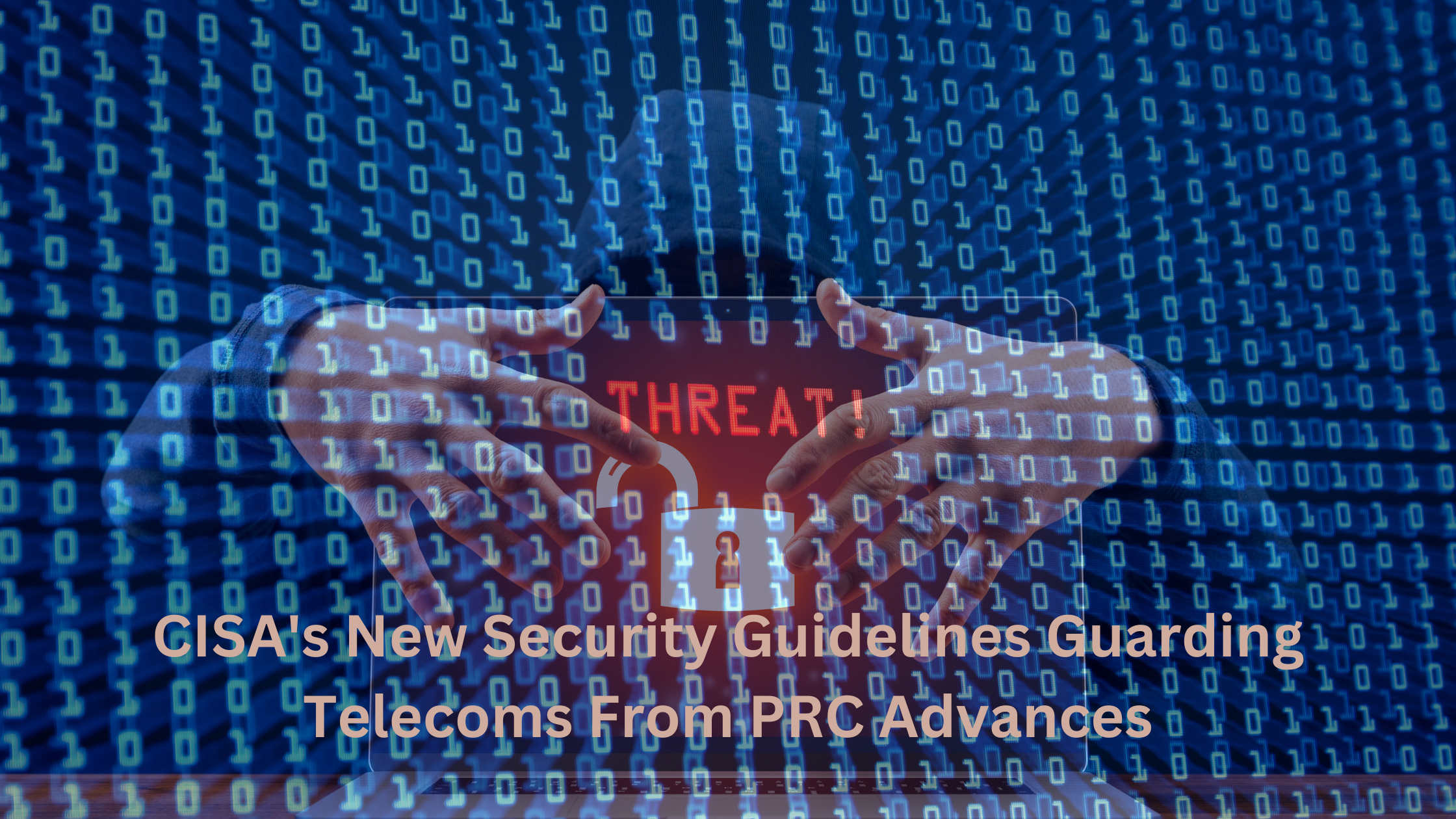Table of Contents
CISA's New Security Guidelines Guarding Telecoms From PRC Advances
In a significant move to bolster cybersecurity defenses, the Cybersecurity and Infrastructure Security Agency (CISA), in collaboration with key partners, has released crucial guidance to protect global telecommunications infrastructure from advanced persistent threats (APTs) linked to the People's Republic of China (PRC). This joint effort, announced on December 3, 2024, comes in response to a widespread campaign that has compromised networks of major telecommunications providers worldwide.
The newly published guide, titled "Enhanced Visibility and Hardening Guidance for Communications Infrastructure," is the result of a collaborative effort between CISA, the National Security Agency (NSA), the Federal Bureau of Investigation (FBI), and international partners including cybersecurity agencies from Australia, Canada, and New Zealand. This comprehensive document provides network engineers and defenders with best practices to strengthen visibility and harden network devices against PRC-affiliated threats.
Jeff Greene, CISA Executive Assistant Director for Cybersecurity, emphasized the gravity of the situation, stating that the PRC-affiliated cyber activity poses a serious threat to critical infrastructure, government agencies, and businesses. The guide aims to help telecommunications and other organizations detect and prevent compromises by the PRC and other cyber actors.
The cyber espionage campaign in question has raised significant concerns due to its broad scope and potential impact. Initially believed to target specific individuals in government or political roles, it has become apparent that these targets may have been caught up in a more extensive operation. Major companies, including T-Mobile, have allegedly been affected, highlighting the far-reaching consequences of this cyber threat.
The FBI's Cyber Division, led by Assistant Director Bryan Vorndran, has warned that threat actors affiliated with the PRC are specifically targeting commercial telecommunications providers to compromise sensitive data and engage in cyber espionage. This underscores the need for enhanced vigilance and robust security measures across the telecommunications sector.
Key recommendations outlined in the new guide include:
Enhancing visibility for edge devices at network perimeters by logging all configuration changes and management connections.
Disabling unused, unauthenticated, or unencrypted protocols.
Implementing secure password storage and management practices.
Limiting management connections and privileged accounts.
Ensuring prompt patching and upgrading of devices.
Allowing only strong cryptography.
The guidance also provides specific hardening best practices for Cisco operating systems, which have been identified as frequent targets of PRC threats. These include disabling Cisco's Smart Install service, Guest Shell access, and non-encrypted web management capabilities.
While the guide is tailored to the communications infrastructure sector, its principles are applicable to organizations with on-premises enterprise equipment across various industries. CISA strongly encourages all critical infrastructure organizations to implement these security best practices to mitigate potential risks.
In addition to providing defensive strategies, the cybersecurity agencies are calling for a proactive approach from software manufacturers. Greene urged these companies to incorporate Secure by Design principles into their development lifecycle, emphasizing the importance of building security into products from the ground up.
The international collaboration behind this guidance demonstrates the global nature of the cyber landscape. By joining forces, these agencies aim to create a more resilient defense against state-sponsored cyber activities and protect sensitive data and essential services worldwide.
Is this article interesting? Keep visit thesecmaster.com, and our social media page on Facebook, LinkedIn, Twitter, Telegram, Tumblr, Medium, and Instagram and subscribe to receive tips like this.
You may also like these articles:
Global Alert PRC Cyber Espionage Campaign Targets Telecom Networks Worldwide
Chinese APT Group Earth Estries Targets Critical Infrastructure with Advanced Cyber Attacks
Intel 471: Report Highlights Evolving Cyber Threats from Chinese APT Groups
Trend Micro Exposes Earth Estries' Advanced Cyber Espionage Campaign Across 13 Countries
Digital PR Firms Unmasked in Global Pro-China Influence Operation Network
Anthony Denis
Anthony Denis a Security News Reporter with a Bachelor's in Business Computer Application. Drawing from a decade of digital media marketing experience and two years of freelance writing, he brings technical expertise to cybersecurity journalism. His background in IT, content creation, and social media management enables him to deliver complex security topics with clarity and insight.
